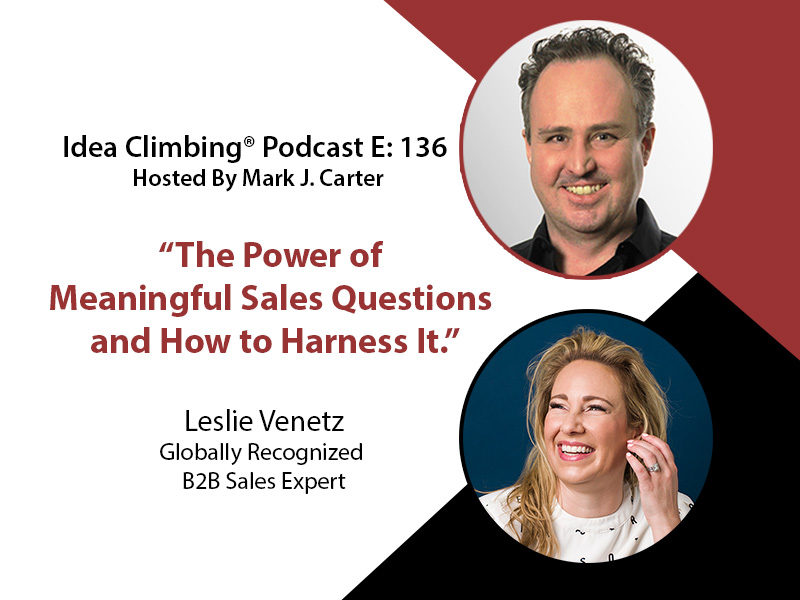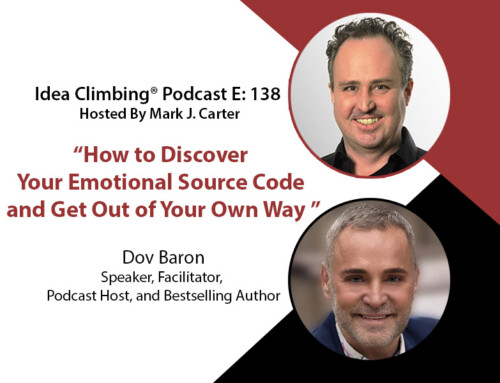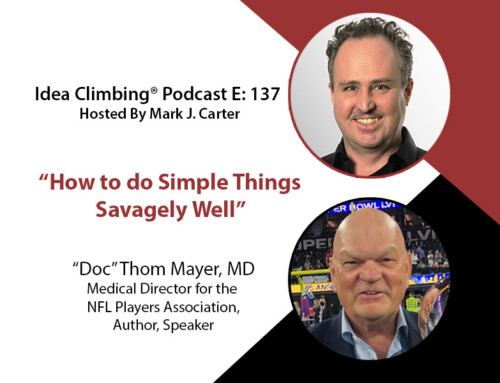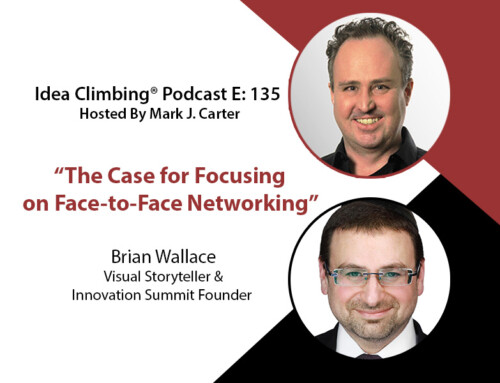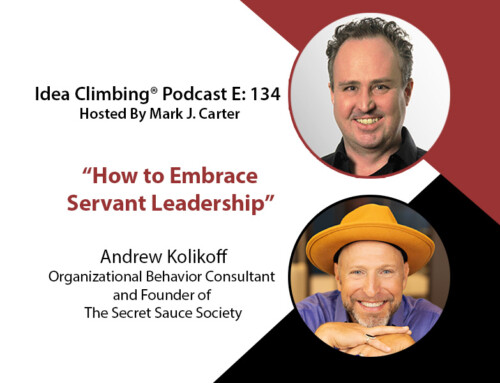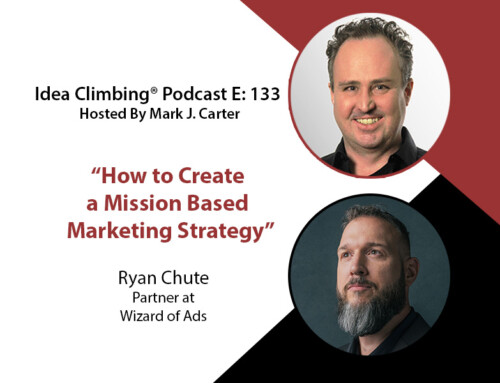Podcast: Play in new window | Download (Duration: 24:58 — 34.5MB) | Embed
Subscribe: Apple Podcasts | Spotify | Amazon Music | Android | iHeartRadio | RSS | More
If you want more quality sales conversations, you must ask more meaningful questions. I discuss how to do that in this episode with my guest, Leslie Venetz.
Leslie is a top 1% B2B sales expert, sought-after speaker, and founder of The Sales-Led GTM Agency. Leslie has been recognized as a global sales thought leader and her insights have been viewed over 100 million times.
Awarded LinkedIn Editorial Top Voice, 5x top 50 Sales Thought Leader, and 2024 Sales Innovator of the Year, Leslie’s also been featured in the Wall Street Journal and Success Magazine. Leslie is the co-author of Heels to Deals and author of the upcoming Profit-Generating Pipeline: A Proven Formula to Earn Trust & Drive Revenue.
A Story and a Roadmap for a Successful Sales Journey
Leslie didn’t realize that her ability to ask questions was so central to her sales success because it wasn’t the thing she was told is most essential to success in the sales world. The things that you’re told are essential to sales success are things like “never take no for an answer” and to “grind and crush objections” and other cliche sales advice. A couple of years into her sales career Leslie reflected on why she was having so much success, examining things like her sales style and overall sales philosophy. She realized that her approach to selling was drastically different than most of her peers.
The types of questions Leslie was asking weren’t just traditional qualifying questions or the superficial “What’s keeping you up at night?” style questions. She was going much deeper. She realized those deeper, more meaningful questions are her sales superpower. It’s something she’s embraced as a skill and has gotten even better at creating meaningful conversations with her prospects as a result.
How to Go Deeper with Questions
In middle school, high school, and college Leslie was a bit of a self-proclaimed nerd, a geek, and she means that in the most positive light ever. She was a varsity policy debater. Her weekends were spent on stage winning awards for policy debate. Later, she participated in her school’s Model UN (MUN). She was even the president of her college MUN group for a handful of years. So, Leslie spent a tremendous amount of time practicing rhetoric. She didn’t know at the time that she was developing a sales skill, but she was, in fact, accidentally practicing the exact foundation that eventually made her wildly successful in sales.
That means when she was participating in a policy debate or a model United Nations round of debate, she couldn’t just ask “What’s keeping you up at night?” and then move on to something else. That would never work if she wanted to have a focused conversation and effective debate. In that context, she had to pull the evidence together or create the reports to support her arguments.
When it comes to sales conversations, it’s nice to know that somebody, for instance, is worried about budgets. If you can create the dynamic where you have the privilege of asking, say, two or three more questions, what you might uncover is that it’s not that they’re just worried about budgets. They’re worried that if they don’t hit their budget numbers, that might require them to lay off some of their staff.
And so, what’s really causing the pain and what they really want to solve for isn’t a little bit of ROI (which is what most salespeople commonly pitch). It is to avoid laying off one of their staff members, all of whom they worked with for years and have strong relationships with. Laying them off could damage those relationships.
Leslie found that the ability to ask meaningful follow-up questions that allow you to go deep and uncover not just a superficial sort of pain that they’re giving you gets to the real issue. Fast. You get to that thing that is going to cause them to want to put the time and effort and budget into solving their problem now instead of later. Those deeper questions make all the difference.
Sales Conversation Strategies to Get to the Real Issue
Leslie told me three things that immediately come to mind:
- Focusing on Cost Of Inaction (COI) over ROI language.
- Indexing on open-ended questions instead of closed-ended questions.
- Practicing active listening as a skill.
When we think about COI (Cost Of Inaction) language, what we need to keep in mind is that we as humans, have an extremely difficult time picturing future gains. We get stuck in today’s problems. Unfortunately, salespeople and entrepreneurs alike tend to default to ROI language. They promise things like “We are going to 2X your revenue.” They ask questions like “What would it mean to you if I could get you 30 more meetings a month?”
Both sales people and entrepreneurs tend to focus on more, more, more. More is a much more difficult way to sell people on taking action than COI language. COI language is going to help them avoid pain. So, it’s a balancing act. You also don’t want to come at people too hard and only use COI language.
The way Leslie coaches her clients when they’re working on sales messaging is having a blend of “pain and gain” messaging. For example, thinking about how she can help them avoid the pain and clearly illustrate that. She tells them what her proposed outcome looks like and what the resulting gain is. She has found that to be extremely valuable to move past the superficial part of the conversation. They save time, they save money, and they reduce risk to get to what really matters.
We also dive into topics including:
- Why big numbers are not believable; why promising less is more when it comes to selling.
- How to avoid setting off red flags in your prospect’s brain during sales conversations.
- The power of open-ended questions and how to leverage them.
- How to “retrain your brain” from old school sales tactics to strategies that actually work in today’s world.
- Why soft skills mean more than technical skills.
- How to successfully practice the four pillars of active listening.
- Why you need to resist the temptation to overtake the conversation by sharing your own experiences.
- How and when to share relevant stories in sales conversations.
- How to hone your questioning skills over time to stay sharp.
- How to balance planning the next question in your head with active listening.
- The one thing, above all else, that you need to do when it comes to asking meaningful questions.
…and more golden nuggets of advice!
You can get my book here: “Idea Climbing: How to Create a Support System for Your Next Big Idea”
Click here for more outstanding interviews with entrepreneurs and thought leaders!
About My Guest
Leslie Venetz is a globally recognized B2B sales expert, corporate trainer, and founder of The Sales-Led GTM Agency. With nearly two decades of experience, she specializes in modern outbound sales strategies that drive revenue, build trust, and empower sales teams to excel. As a LinkedIn Editorial Top Voice and top 1% sales thought leader, Leslie’s insights have reached over 100 million views worldwide, transforming the performance of sales leaders and their teams.
Having personally made more than 250,000 cold calls and influenced over ten million through her training programs, Leslie has helped thousands refine their prospecting skills, overcome objections, and lead sales conversations that convert. She has delivered hundreds of keynotes and workshops for top-tier B2B brands and consulting firms across four continents and has been featured in prestigious publications like The Wall Street Journal and Success Magazine.
A recipient of 20+ industry honors, including 2024 Sales Innovator of the Year, Leslie is redefining what it means to be an ethical, effective, and high-performing sales professional.
